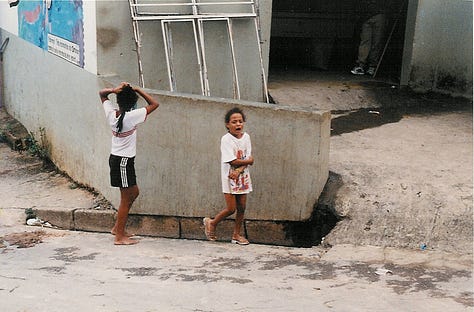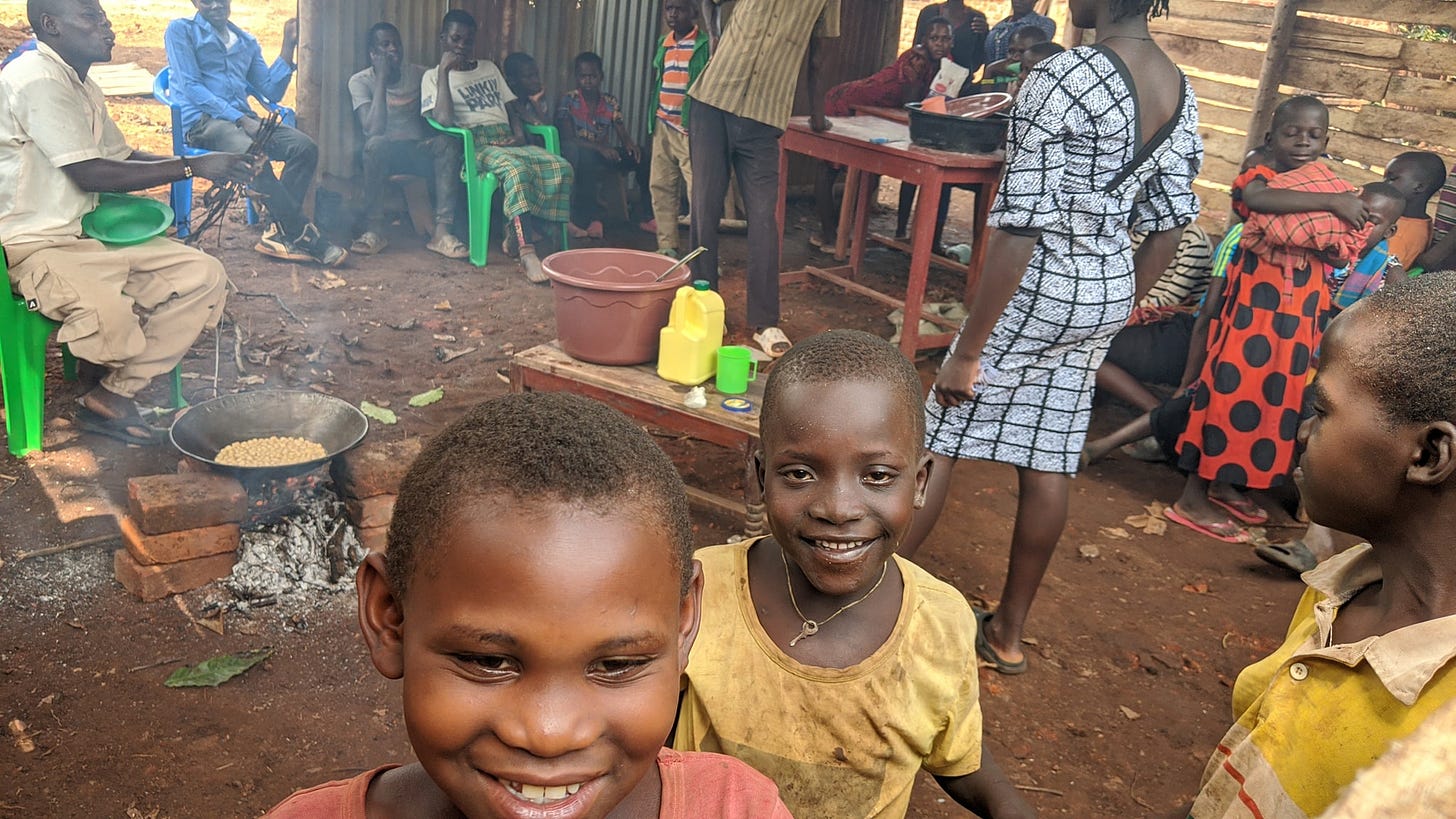Buy a Kid a Goat: unleash compassion, secret sauce of change makers
I've felt empathy, I've felt compassion. Compassion is better.



Compassion. That deep feeling that wells up out of the heart, oftentimes unbidden. Compassion insists we drop coins in the guitar case of a busker on a busy street corner downtown. It tells us to serve turkey to the homeless when we could be at home with our families on Thanksgiving. It says to tip a cranky waitress extra. And it nudges us to send money to rag-tag kids in Uganda so that they and many others can go to school and have a better life.
Some of you have done these things. Thank you. Doesn’t it feel great?
I love compassion. Both acting on and feeling it. It arises suddenly from out of nowhere, engaging my emotions in a warm rush and prompting me to action. I hope it doesn’t sound too out there, but I think that to feel compassion, to act on empathy, is to touch and express the very heart of God. Demonstrating compassion is nothing less than spiritual.
The first time I felt real compassion I was on a prayer line in a non-denominational church. The woman for whom I prayed was about to lose her house, or maybe her child was drug addicted, I don’t remember. The point is that she was in deep distress. She was weeping. As I paused before starting to pray, I thought about not what she wanted me to pray about, but what she truly needed. She needed peace. She needed to trust that there was something much bigger than her and bigger than me. Just any old prayer was not the fix for the problem she brought to me. The fix was for her to comprehend the only path that could lead her to peace.
Last May I went to Uganda, I’ve told you about that, and met a little girl for whom I felt great empathy. Her village is poor and remote. Her mother had been violently traumatized and she is unable to care for her children. The girl and her brothers and sisters live with their grandmother who loves them but also has trouble caring for them. The region where they live has Uganda’s highest rates of child brides and teenage mothers. Looking ahead to her future - if nothing changes - her life will be bleak at best, and likely, as dangerous for her as it was for her mother.
As our bus drove away from her village, I knew that my empathy had to progress past simply validating her life and pain. I had to transform it from empathy into compassionate action. So, when I got home, the Professor and I resolved to be change makers for her and her village. We began sending her and her brothers and sisters to school so that some day they can grow up to be change makers themselves. Ugandans for Uganda. But even as we helped, we suspected that someday we’d no longer be able to help.
Why? Getting all the way through school is a long process. We’re on fixed incomes (retired) and not only may we someday have to stop sending support, Uganda is politically volatile these days. After blow-back from Uganda’s Anti-Gay Bill, relations with the US and other Western countries worsened. The result has been that international funding sources have declined and the Ugandan people have suffered at the hands of their government too. This, combined with Africa’s colonial history, has increased resentment against Westerners and political leadership in Uganda is isolating her people from the West.
For example, there’s a recent ban against bringing donated clothing into Uganda from Western countries. The president calls donated clothing “dead peoples clothes’". China, Russia, and Iran are stepping up to pay for infrastructure and other things. It’s not unreasonable to imagine a time that financial donations from the West could be banned.
That’s why, among other reasons, our initiative, Goats for Kamuli Kids, must raise $5,500 to be sustainable. Our donations go to starting a herd of goats to support these childrens’ education for the long haul. These kids have potential to grow into change makers themselves, young men and women who develop agricultural businesses to feed and transform their country, if they’re educated. Without ongoing donations for years or an investment now to develop a sustainable program to replace them, they won’t.
So, we’ve strategically laid out a path for Goats for Kamuli Kids to become sustainable by next September, but so far fundraising is short of our goal. Will you help?
Goats for Kamuli Kids, if we jump start it, can forever change the destinies of some sweet kids in a tiny rural agricultural village in Uganda, kids who will change the future of their region and maybe their country one day. Compassion is the path to making that happen.
Visit my previous post to review the budget and the plan to stand up a sustainable agricultural business to educate these kids. Please, help me raise $3,600 more while we can. Let’s watch those kids arise. Watch their community arise. Let’s watch Uganda arise.
When I went there last year, I had no idea why I was going but I knew there was a reason. I believe that it was to allow me to practice compassion and maybe, to allow you to do the same.
Empathy is not enough. Let’s unleash the secret sauce, compassion. Let’s give them an opportunity to change their lives, shape their destinies.
In exchange, I promise you a feeling like no other. Compassion. You might even get addicted to it. Like me.







Very interesting read. How is it that I followed not knowing that you have been to my beautiful country. I learned something from your post today; the difference between empathy and compassion.
Thank you for being compassionate.